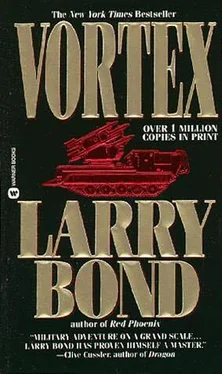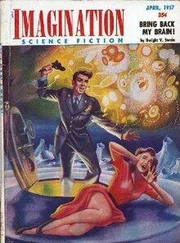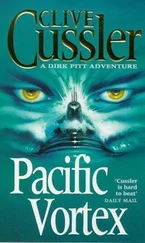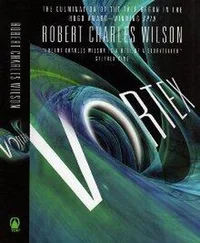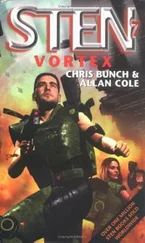More trucks would arrive over the next few days. Once his entire column was mounted, they would move ten times as fast. He allowed himself a faint anticipation. Even with delays, General Vega knew he would be home in a week.
Mchwenge felt the column’s approach in the ground beneath him, then saw the dust plume. Finally, almost an hour after the first warning of its approach, the column’s head appeared on the horizon.
They were slow, walking at the pace of an infantryman’s tired stride. The same slowness that had made it easy to pace and scout the Cubans now maddened him, filling him with impatience.
The Xhosa picked up the controller, then put it down, then picked it up again, checking the settings on its simple controls. He put it down again, almost throwing it, and fought the urge to pick it up again and check for damage.
The rock pile was waist high and had been altered slightly by Mchwenge to provide overhead concealment, as well as shade. Gaps at various points allowed him to peer out, and his comrades, checking the day before, had assured him that he was invisible from more than a meter away.
Mchwenge lay in the dark heat and waited, watching the steady progress of the column. His original plan had been to sneak looks occasionally, remaining completely concealed to minimize the risk of detection.
When the trucks had actually appeared, though, he had found it impossible to tear his eyes away, as if from half a mile’s distance they could suddenly zoom past the spot before he could react.
So he had watched through the gaps and waited, and finally, after half a morning of waiting, he reached for the controller again.
The small black box had a wire running from it. He looked it over carefully and again fought the urge to fiddle with its insides. He had put in fresh batteries that morning and so limited himself to one press of the test button. The yellow test light came on, and Mchwenge knew he had a circuit.
He had placed a small stone twenty meters from the spot, and as the lead truck’s tires passed, he lifted a cover on the controller’s box and flipped a toggle switch up. A red light next to the yellow one came on.
The circuit was armed.
The actual spot was easy to see. The meta led road had been torn up here, by weather or fighting. Even tracked vehicles crossing it could have created the break, but it was just what he had needed.
It was no different from a hundred other gaps, but it was close to the crash site and had made their trip relatively short. Besides, why should the Cubans be suspicious? The fighting had stopped.
There was no sign of any reaction in the column, just a slow, steady march north that took them right over the break in the road.
A few miles from here, a South African jet had crashed, a forced landing by the looks of it since the airframe was still intact, The pilot had died on landing. Mchwenge’s comrades had found his dessicated body, still gripping the stick.
The plane’s ordnance load had also survived, or almost. Two five-hundred-pound bombs had been found near the wrecked plane, and one was adjudged safe enough by ordnance experts to be moved.
As the truck rolled over the gap in the meta led road, Mchwenge pressed the firing button, sending an electric pulse through a buried wire to five pounds of C4 plastic explosive. It detonated, serving the same purpose as the bomb’s damaged fuze. Two hundred pounds of Minol detonated exactly under the lead truck’s center.
Colonel Vasquez saw the explosion. He had gotten out to walk for a while, not only to give the general a little room but to think about his own future, personally and professionally. Castro was not a tyrant, shooting people at whim, but they had failed their leader, and he would need scapegoats. What would be their fates?
He was looking at Vega, sitting in the back of the truck,
when a bright flash and a roar knocked Vasquez over, stunning him. He had one brief impression of the surprised general, unable even to lift his eyes from the paper, before the entire vehicle was enveloped in smoke and flame.
Vasquez came to a moment later as a soldier dragged him away from the fire. A thick column of greasy smoke rose from the blackened, shattered remains of a Russian-built ZIL heavy truck.
Panic filled Vasquez, and he grabbed at the arms pulling at his. He looked up into the soldier’s face and shouted, “Did anyone get out? Where is the general?”
“He is gone, Comrade Colonel. Nobody escaped.”
Vasquez refused to give up.
“Maybe someone was blown clear.” Maybe that someone was Vega.
“No, Comrade Colonel, the explosion was too great. They were all killed instantly.”
The soldier, absorbed in their conversation, was still dragging the officer. Vasquez shook off the man’s hands and stood up unsteadily. His uniform was torn and blackened from the blast, and he saw, but did not feet, blood trickling from a few small cuts.
He took one unsteady step back toward the wreckage, then another, until he could clearly see that only the bare metal skeleton of the vehicle remained. The wooden flooring had a four-foot hole blown in the center, and the frame was twisted, as if it had been softened by the heat and then dropped. He could see no sign of any bodies and knew that any human remains that might be found would be in pieces too small to identify.
Vega was gone, and Suarez, and Gomez, who had been driving, and perhaps others he would have to search for. His sadness was mixed with relief for his comrades. At least they would not have to make the long journey home to face Castro’s anger.
“Colonel, what should we do?” One of the lieutenants nearby, in charge of a group of men that had once been a company, looked to him for orders.
Vasquez was almost certainly the senior officer in the force now. He looked again at the wreckage of Vega’s truck. It was one post he had never wanted.
The lieutenant repeated the request.
“Colonel, what can we do now?”
Vasquez pointed ahead and to the side of the road.
“Bear left and keep marching.”
FEBRUARY 15-CNN HEADLINE NEWS
In many ways, the televised images from Cape Town carried even more meaning than the reporter’s spoken commentary.
Pockmarks were still visible on the graceful columns fronting the Houses of Parliament. Sections of its iron rail fence were missing, warped, or shattered by shell bursts. Most of the century-old oak trees that once shaded Government Avenue’s gravel walk were also gone-blown down during the fighting and now replaced by newly planted saplings.
There were even more dramatic changes among the somber faces of the men and women filing slowly in past temporary metal and bomb detectors. Most wore business suits and many carried bulging leather briefcases. Unlike past gatherings in South Africa’s legislative chambers, however, those assembling for this first, full working session of the new Constitutional
Convention represented all of the nation’s varied races and ethnic groups. Some were lawyers and politicians. Others were farmers or doctors or teachers or businessmen, people with no experience in government. Despite their obvious differences, they had one important thing in common. All had opposed Vorster’s regime at the risk of imprisonment or death.
“Although innumerable problems remain to be settled, one thing is clear:
apartheid in South Africa is a thing of the past.
“With so many of the extremists on all sides dead or in prison, the way may finally be clear for others to lead South Africa’s separate peoples toward a better future together. The political settlement that emerges from this convention’s closed-door conference rooms is unlikely to be perfect, but it just might be workable.
Читать дальше
